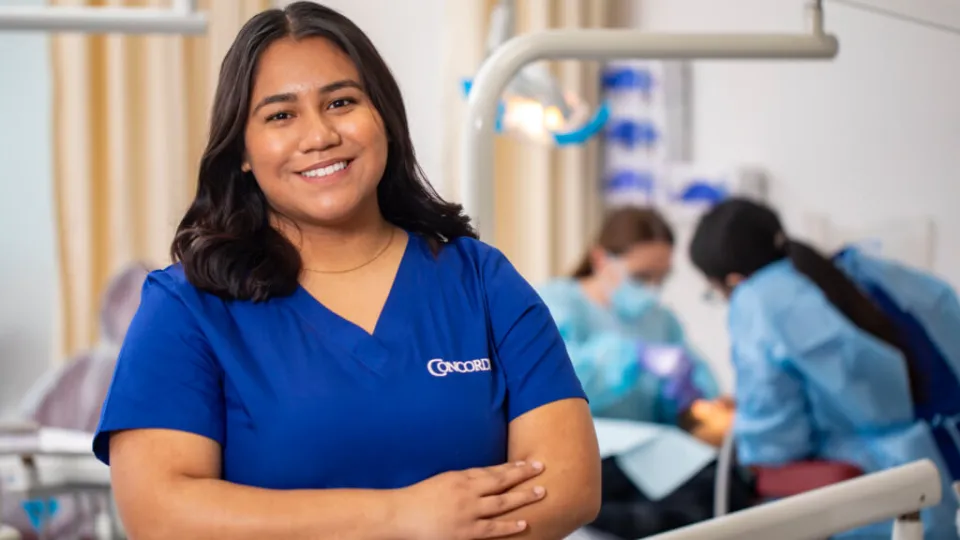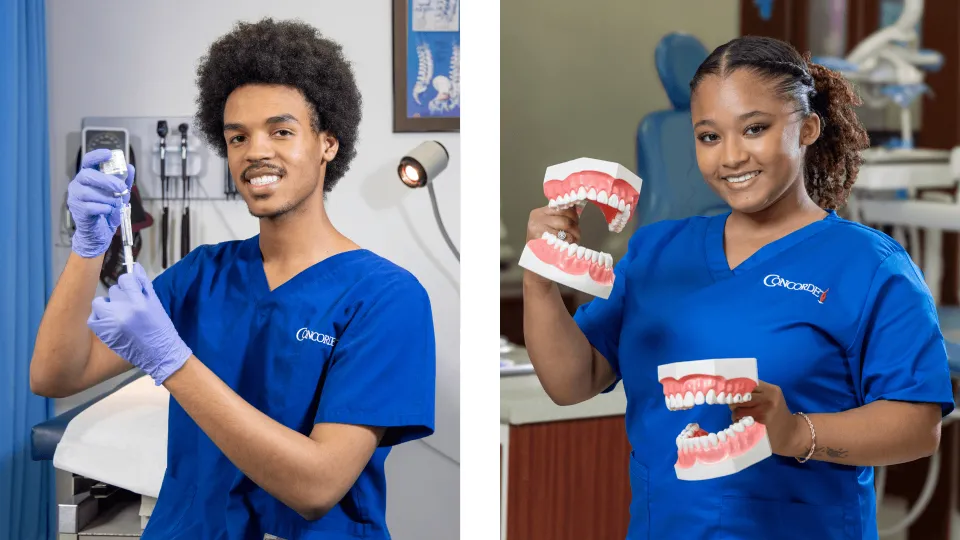
An orthodontist assistant is similar to a Dental Assistant, only it's supporting and assisting an orthodontist as opposed to a dentist. Some of our Dental Assistant students at Concorde aspire to become orthodontist assistants, and some of our DA graduates already have made the transition into orthodontics.
For those Dental Assistant students looking to one day move into orthodontics, we thought we'd look into the basic requirements it takes to move from DA to orthodontics. First, let's take a look at precisely what an orthodontics assistant does.
What does an orthodontist assistant do?
According to an article on Learn.org, an orthodontist assistant's duties are quite similar to that of a Dental Assistant. They support an orthodontist by preparing tools, talking to patients and generally providing assistance to the orthodontist. The Dental Assistant often meets with patients first. They might perform cleaning duties and check-in with patients to see if they are experiencing any problems. They also work closely with the orthodontist while they perform procedures and make sure they have all the necessary tools.
Patient care and chair-side assistance are major responsibilities. In addition to duties such as cleaning and sterilizing instruments and helping orthodontists attach brackets, bands and wires, there are also general office duties, such as maintaining patient records, ordering supplies, answering phones and scheduling appointments.
Points for the Dental Assistant to consider when making the move to orthodontics
Linda Ridenhour, DA, RDH, BA, BSDH, Dental Assistant Program Director at Concorde's campus in Kansas City, Mo., listed the following points for dental assistants to consider when thinking about the move to become an orthodontist assistant.
- Complete a dental assisting program.
- Take the Basic Skills Exam through the Dental Assisting National Board.
- Have a real interest in orthodontics.
- Be fascinated by the way teeth move.
- Visit an orthodontist office, where you can shadow for a day.
- Enjoy working with children, young people, and adults.
- Work without supervision.
- Enjoy dentistry.
Steps the Dental Assistant can take to become an orthodontist assistant
Complete a training program. Dedicated training programs for orthodontist assistants are relatively rare. You're more likely to find orthodontics courses within a dental assisting certificate or associate degree dental assistant training programs. Content specific to orthodontics focuses on bonding agents, different varieties of tooth appliances and the manipulation of archwires.
Consider certification. Although certification isn't required in most states, it demonstrates your competence and can potentially lead to a higher salary. You can obtain the Certified Orthodontic Assistant (COA) designation from the Dental Assisting National Board.
Advance your career. Unless you've already earned an associate degree, most advanced options require additional education.
Obtain a job. The Bureau of Labor Statistics doesn't offer specific data for orthodontist assistants. But, according to BLS, about 8,200 orthodontists were practicing in 2014, so you can gain an approximation for employment demand off of that.
Take The Next Step Towards a Brighter Future
Interested in learning more about our Dental Assistant program?
We have a Concorde representative ready to talk about what matters most to you. Get answers about start dates, curriculum, financial aid, scholarships and more!







